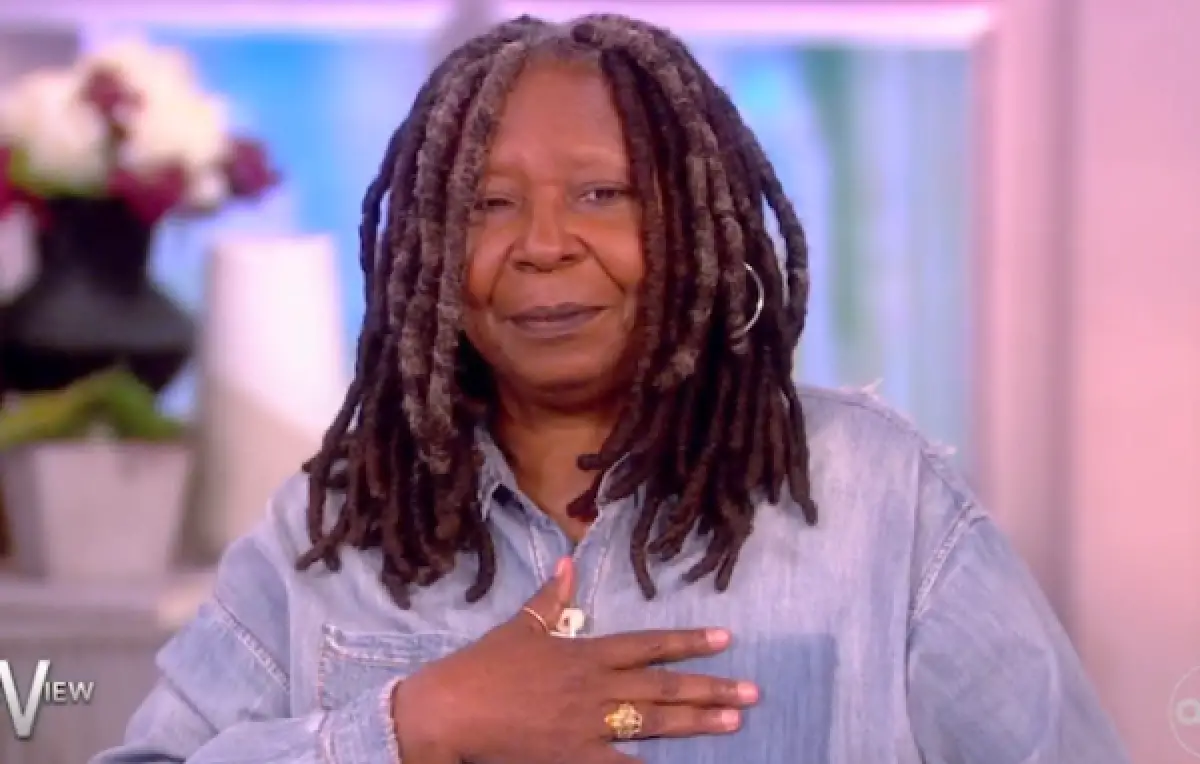In a moment that has quickly gone viral, the co-hosts of ABC’s “The View” have come under intense scrutiny after making unkind remarks about Elon Musk’s 4-year-old son during a segment that heavily criticized the Tesla CEO. The controversy erupted on Thursday, February 13, during a segment where the hosts took aim at both Musk and his young child, whose unusual name—X Æ A-XII, often shortened to “Lil X”—became the focus of their mocking commentary.
During the segment, the discussion centered around a recent press briefing held at the Oval Office. This briefing, which featured Elon Musk alongside former President Donald Trump, was intended to address issues of fraud and waste uncovered by Musk’s Department of Government Efficiency. However, the segment quickly derailed when the co-hosts began to target Musk’s youngest son.
Whoopi Goldberg, one of the most recognizable faces on “The View,” initiated the controversial exchange by noting, “Yeah, so yesterday Elon Musk took his son X to a press conference—” before being interrupted by co-host Joy Behar. Behar’s query, “X?” was followed by a series of snide remarks. Whoopi, clearly agitated, commented sarcastically, “I did not name the child,” implying that the boy’s unique name was more than enough to invite ridicule. Behar further exacerbated the situation by questioning, “That’s the kid’s name?” and even went on to call the child “little Instagram,” mocking both the name and the culture of social media.
The exchange did not stop there. When co-host Sarah Haines interjected, clarifying that Elon Musk does not own Instagram, Whoopi and the other hosts continued their barrage of criticism. Their comments focused on both Musk’s decision to bring his son along to the press conference and the striking nature of his child’s name. The segment’s tone was harsh, leaving many viewers outraged by what they saw as an unnecessary and unkind personal attack on a young child.
Not surprisingly, the remarks sparked a heated debate online. Many viewers took to social media to express their disapproval of the segment’s tone and content. Numerous comments decried the mocking of a 4-year-old, arguing that public figures should be held accountable for fostering a culture of kindness, especially when it involves children. One user commented, “Mocking a child is never acceptable, regardless of the circumstances. This is just plain mean.” Others echoed similar sentiments, urging the hosts to focus on policy and substance rather than resorting to personal attacks.
However, the reaction was not entirely one-sided. Some viewers offered a more balanced perspective, suggesting that while the comments were harsh, they might have been intended as satire rather than outright bullying. Actor William Shatner, for instance, tweeted a light-hearted response upon seeing footage of Musk with his son, jokingly asking if the child was one of Musk’s “young engineers.” Shatner’s comment, though humorous, was met with a mix of amusement and criticism, highlighting the divided opinions on the matter.
Political commentator Will Cain also weighed in on the incident, noting that Musk’s decision to bring his son along to such a high-profile event might reflect a commitment to family values and a desire to be present in his children’s lives despite the pressures of his public role. “It takes a strong person to balance work and family, and Elon bringing his son along shows he’s ready to shoulder both responsibilities,” Cain remarked. Many online supporters of Musk echoed this sentiment, praising him for allowing his young son to be part of his professional world.
Despite the mixed reactions, the backlash against “The View” remains significant. Critics argue that the segment crossed a line by making a spectacle out of a child’s unusual name and by using a family’s private matter as fodder for entertainment. The controversy has ignited a broader discussion about the responsibilities of television hosts when it comes to discussing personal topics, particularly those involving minors.
For now, the incident has added another chapter to the ongoing debate about celebrity culture and media ethics. While the co-hosts of “The View” are known for their bold and often provocative commentary, this latest episode has led many to question whether the pursuit of ratings is worth the potential harm caused by such remarks.
As public discourse continues to evolve, this episode serves as a reminder that even in the fast-paced world of live television, the impact of words can be far-reaching—especially when they target the most vulnerable among us. The conversation surrounding Elon Musk’s family and the media’s treatment of personal narratives is likely to persist, raising important questions about respect, responsibility, and the boundaries of satire in today’s media landscape.

